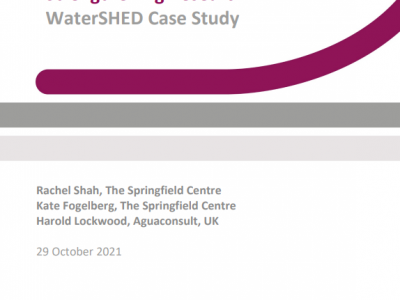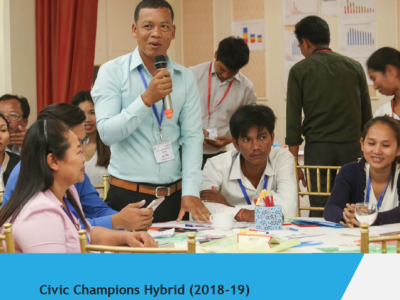Women in WASH
Our mission is to build the market system for WASH. How would that work if it didn’t include women?Why a Women in WASH Program?
We often hear how women bear the burden of inadequate water, sanitation, and hygiene. They spend time collecting water, caring for sick children, etc. These are fine reasons to include women in WASH programming.
But we shouldn’t have to explain why.
If we are actually serious about creating a robust and sustainable system for public health (or almost anything else), we can’t ignore the roles of women. Women as customers. Women as community leaders. Women as business owners. Women in government.
Measuring local leadership with 144 natural experiments
Civic Champions Hybrid (2018-19) Cost-Efficiency Analysis
Our approach
Strengths based – rural women are used to NGOs focusing on what’s lacking, which can obscure opportunities within reach. We support women to focus on those opportunities – to leverage their existing strengths and assets in order to improve themselves and to build each other up.
Build networks – one of the best resources for professional development is a network of peers and mentors. In rural Cambodia many women are relatively isolated, relying almost completely on their male family members for career information and advice. With a more diverse network, many women can begin to identify ways to capitalize on their potential and overcome the perennial barriers to professional and entrepreneurial endeavours.
In keeping with our philosophy to build and strengthen local systems, network-building enables local solutions that are less reliant on external NGO-led interventions.
Not just handicrafts – we support women to identify their own opportunities across any sector. WASH supply chains, like construction and heavy industries, are traditionally male-dominated. The women engaged in our program uncover opportunities far beyond weaving and crochet – in distribution, sales, and production.
Sustained engagement – no one-off workshops or high per diems. We offer a diverse and ongoing set of touchpoints and support with tools, training, peer and group mentorship, and workshops designed and led by Cambodian women.
-
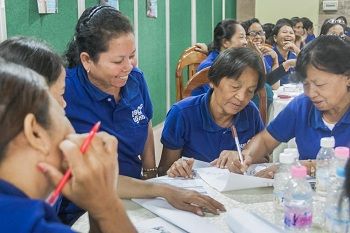
WEwork collective
A skills training and mentorship program to improve the productivity and decision-making power of women in rural markets. More than 200 participants from across the country form peer-support groups to strengthen their business and leadership skills.
-
Marketing by Women
Less than a third of promotional agents for water, sanitation, and hygiene products are women. We are using action research to better understand the challenges women face as sellers and to explore new ways for them to enter and succeed in the market.
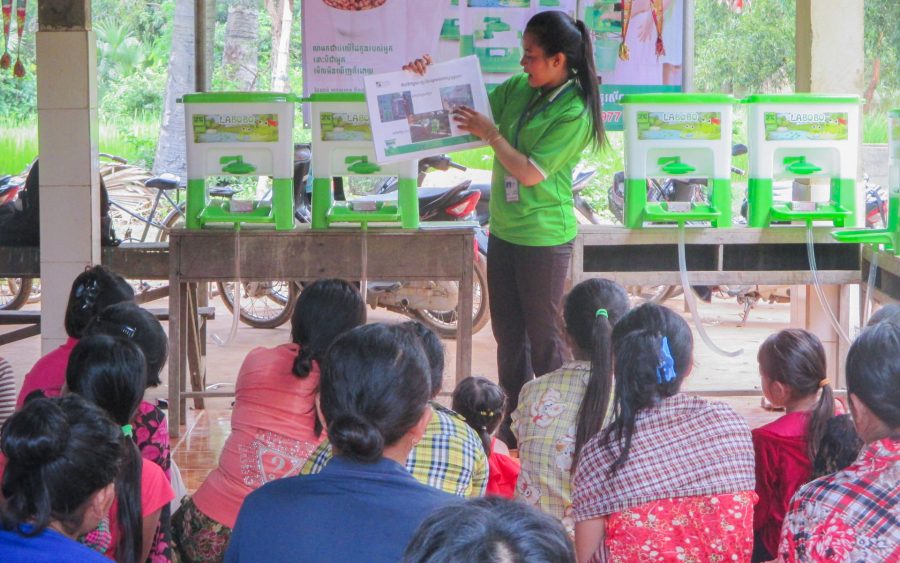
-

Marketing to Women
Women, as the primary caregivers, are often responsible for household water, sanitation and hygiene. We are creating and adapting marketing tools that better resonate with women as customers of WASH products.
-
Research
A key priority of this program is to experiment, capture, and share what we learn. Our research products, practical actionable guidelines are made available for businesses, NGOs, and governments to leverage the power of an inclusive market.
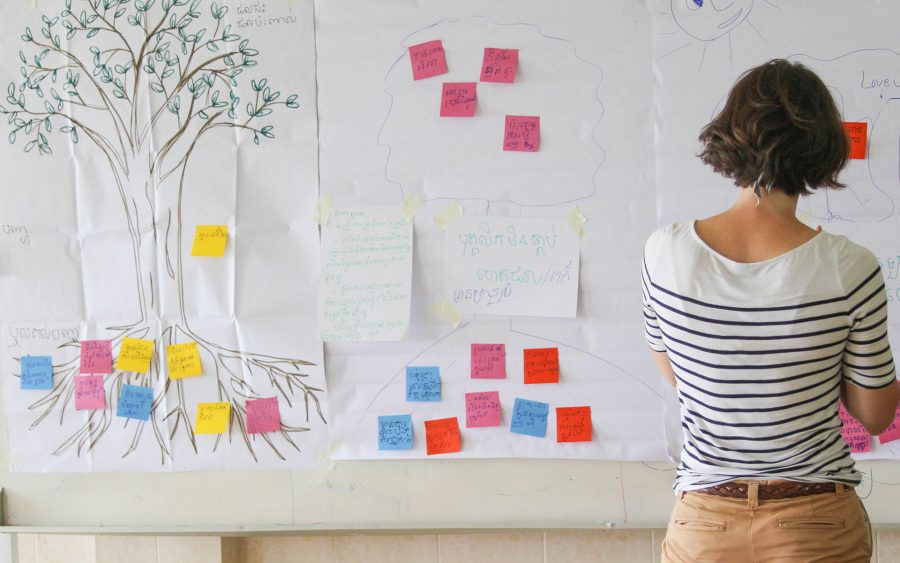
On our blog
“… current incomes such as income and education miss the full picture.” How do we measure women’s empowerment.


